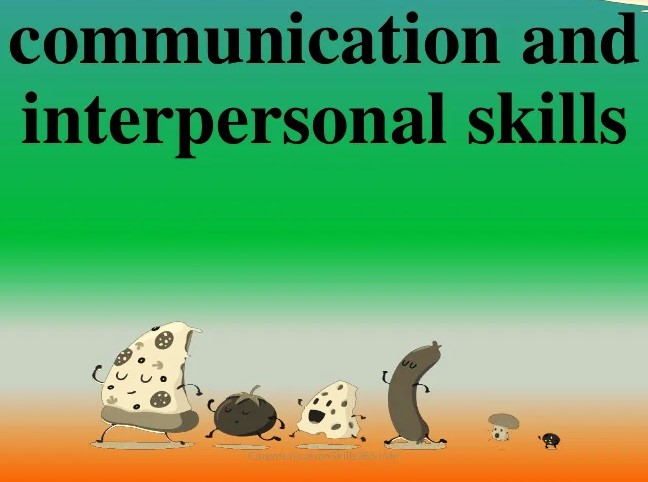The concept of the “School of Life”
Life is a never-ending journey of learning and personal growth. The “School of Life” is an analogy representing the ongoing process of discovering, developing, and refining our skills and abilities to navigate the complex and ever-changing world we live in. In this school, we don’t receive a diploma or degree; instead, we graduate with a wealth of wisdom, experiences, and insights that shape us into more resilient, adaptable, and compassionate individuals.
Why a curriculum for personal development is essential?
A well-rounded curriculum for personal development is essential because it provides a comprehensive framework for self-improvement and self-discovery. By actively engaging in our own growth, we can better understand our strengths and weaknesses, develop crucial life skills, and ultimately, lead more fulfilling and successful lives. This curriculum isn’t just about achieving success in the conventional sense, but rather about developing a deeper understanding of ourselves, fostering healthy relationships, and cultivating the emotional intelligence needed to thrive in any situation. Investing in personal development is an investment in our overall well-being and happiness, both now and in the future.
Self-Awareness and Personal Growth
Understanding yourself
To embark on a journey of personal growth, the first step is understanding yourself. This involves taking an honest look at who you are and reflecting on your thoughts, emotions, and behaviors. Knowing yourself is the foundation upon which you can build a more fulfilling and successful life.
- Identifying strengths and weaknesses: Recognize your unique talents, skills, and abilities, as well as the areas where you could improve. By being aware of your strengths and weaknesses, you can leverage them to your advantage and work on areas that need development.
- Exploring core values and beliefs: Discover the principles and ideals that guide your life. Reflect on what truly matters to you, and consider how your values and beliefs shape your decisions and actions.
Setting goals and objectives
Once you have a clear understanding of yourself, the next step is to set meaningful goals and objectives that align with your values and aspirations.
- Crafting a personal mission statement: Create a statement that defines your purpose in life and serves as a guiding force for your actions. This mission statement should encapsulate your core values and the impact you wish to make on the world.
- Establishing short-term and long-term goals: Break down your overarching objectives into smaller, achievable short-term goals and more ambitious long-term goals. Ensure that these goals are specific, measurable, attainable, relevant, and time-bound (SMART).
Developing resilience
In the School of Life, setbacks and obstacles are inevitable. Developing resilience allows you to bounce back from these challenges and continue moving forward on your path to personal growth.
- Overcoming obstacles and setbacks: Embrace adversity as an opportunity to learn and grow. Develop problem-solving skills and maintain a positive attitude to tackle challenges head-on and find creative solutions.
- Learning from failure: Recognize that failure is a natural part of the learning process. Reflect on the lessons learned from each setback and use these insights to improve and refine your approach, ultimately becoming stronger and more capable.
Communication and Interpersonal Skills

Effective communication
Strong communication skills are essential for building and maintaining healthy relationships, both personally and professionally. Effective communication allows us to convey our thoughts, feelings, and ideas clearly and respectfully.
- Active listening and empathic understanding: Practice attentive and engaged listening to truly understand another person’s perspective. By demonstrating empathy, you validate their feelings and foster a deeper connection.
- Assertiveness and expressing oneself: Learn to communicate your needs, desires, and opinions in a respectful and confident manner. Being assertive allows you to stand up for yourself while maintaining healthy boundaries.
Building strong relationships
Developing meaningful connections with others is a crucial aspect of a fulfilling life. Strong relationships provide support, companionship, and opportunities for personal growth.
- Establishing trust and rapport: Create a foundation of trust in your relationships by being reliable, honest, and open. Develop rapport by finding common ground and showing genuine interest in the other person’s well-being.
- Resolving conflicts and maintaining harmony: Learn to address disagreements and conflicts constructively, focusing on finding mutually beneficial solutions. Maintain harmony in your relationships by practicing empathy, forgiveness, and understanding.
Networking and connecting with others
Expanding your social and professional network can lead to new opportunities, both personally and professionally. Cultivating connections with a diverse range of individuals can enrich your life and broaden your perspective.
- Expanding your circle of influence: Actively seek out new relationships and connections by attending events, joining clubs or organizations, and engaging with others online. Be open to meeting people from different backgrounds and walks of life.
- Cultivating mutually beneficial relationships: Focus on building relationships that are beneficial for both parties. Offer your support, knowledge, and resources, and be open to receiving the same in return. By fostering reciprocal connections, you can create a network of individuals who support and empower one another.
Emotional Intelligence and Well-Being
Understanding emotions
Emotional intelligence is the ability to recognize, understand, and manage our emotions and the emotions of others. Developing emotional intelligence is crucial for maintaining well-being and fostering healthy relationships.
- Recognizing and managing your own emotions: Learn to identify your emotions as they arise and understand the factors that influence them. Develop strategies to regulate your emotions in a healthy and constructive way.
- Identifying and responding to others’ emotions: Cultivate the ability to recognize and empathize with the emotions of others. Respond with understanding and support, helping to create a positive emotional environment for everyone involved.
Developing emotional resilience
Emotional resilience is the ability to cope with and bounce back from emotional challenges, setbacks, and stressors. Building emotional resilience is vital for maintaining mental and emotional well-being.
- Coping with stress and anxiety: Develop healthy coping strategies, such as mindfulness practices, exercise, and social support, to manage stress and anxiety effectively.
- Practicing self-compassion and forgiveness: Cultivate a kind and understanding attitude toward yourself, particularly during times of difficulty or failure. Practice forgiveness and let go of self-criticism and negative self-talk.
Cultivating happiness and contentment
Finding happiness and contentment in life is an essential component of overall well-being. By focusing on the aspects of life that bring joy and fulfillment, we can increase our sense of satisfaction and happiness.
- Mindfulness and living in the present: Embrace the practice of mindfulness to fully engage with the present moment, rather than dwelling on the past or worrying about the future. By staying present, we can savor and appreciate life’s experiences more fully.
- Gratitude and appreciation: Cultivate a habit of expressing gratitude for the positive aspects of your life, both big and small. Recognize the people, experiences, and opportunities that enrich your life, and express appreciation for them regularly. Practicing gratitude can lead to increased happiness, contentment, and well-being.
Continuous Learning and Adaptability
Embracing a growth mindset
A growth mindset is the belief that abilities, intelligence, and talents can be developed through hard work, dedication, and perseverance. Embracing a growth mindset allows you to approach challenges as opportunities for self-improvement and learning.
- Seeking opportunities for growth: Actively search for new experiences, challenges, and opportunities to learn and grow. Continuously push yourself out of your comfort zone to expand your capabilities and knowledge.
- Overcoming the fear of failure: Recognize that failure is a natural part of the learning process and not something to be feared. Use setbacks as an opportunity to reflect, learn, and adapt, ultimately becoming more skilled and resilient.
Developing lifelong learning habits
Cultivating the habit of lifelong learning is essential for staying relevant, adaptable, and engaged in an ever-changing world.
- Pursuing personal and professional development: Invest in your personal and professional growth by attending workshops, seminars, and courses, reading books and articles, or seeking mentorship and guidance from experienced individuals.
- Reflecting on experiences and lessons learned: Regularly reflect on your experiences, both successes and failures, to identify the lessons and insights gained. Use these reflections to guide your future decisions and actions, continuously refining your approach and strategies.
Adapting to change
In today’s fast-paced world, change is the only constant. Developing the ability to adapt to change is essential for thriving personally and professionally.
- Embracing uncertainty and unpredictability: Learn to accept that uncertainty and unpredictability are inherent aspects of life. Cultivate a sense of curiosity and openness to change, viewing it as an opportunity for growth and transformation.
- Preparing for the future with flexibility: Stay adaptable and flexible in your plans and expectations, recognizing that the future is uncertain and may not unfold as anticipated. By maintaining a flexible mindset, you can more effectively navigate change and capitalize on new opportunities that arise.
Conclusion
The importance of personal development in the #SchoolofLife
Personal development is the cornerstone of success and fulfillment in the “School of Life.” By dedicating ourselves to continuous learning, growth, and self-improvement, we can become more resilient, adaptable, and emotionally intelligent individuals. Investing in our personal development not only leads to a better understanding of ourselves but also empowers us to forge stronger relationships, navigate life’s challenges, and ultimately, create a more fulfilling and meaningful existence.
Taking the first step towards growth and self-improvement
Embarking on the journey of personal development begins with a single step. The first step is recognizing the value and importance of self-improvement and committing to the process of growth. By incorporating the lessons and strategies outlined in this curriculum, you can steadily progress along your path of personal development. Remember that the “School of Life” is an ongoing, lifelong journey, and each step you take brings you closer to realizing your full potential and living your best life.
